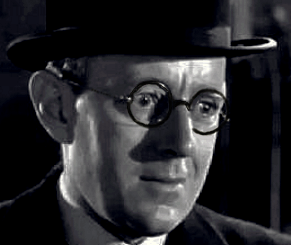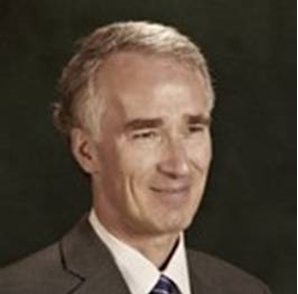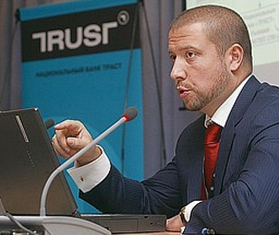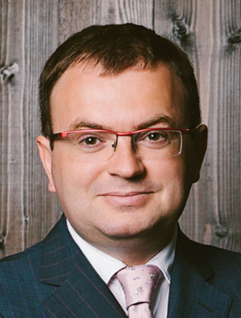Lambert here: John LeCarré, contemporary historian.
By John Helmer, the longest continuously serving foreign correspondent in Russia, and the only western journalist to direct his own bureau independent of single national or commercial ties. Helmer has also been a professor of political science, and an advisor to government heads in Greece, the United States, and Asia. He is the first and only member of a US presidential administration (Jimmy Carter) to establish himself in Russia. Originally published at Dances with Bears
In the first tale of the thieves’ picnic, published by Leslie Charteris in 1937,a gang of robbers, kidnappers, and smugglers starts to fall apart over a $2 million lottery ticket one of the thieves stole from the gang’s pot. The detective who recovers the ticket, and rescues a diamond-cutter who’d been abducted for the gang’s diamond-smuggling operation, rolls up the crimes by pretending to be a gangster himself, and encouraging the others to betray each other.
By the standards of Ilya Yurov and Benedict Worsley, the original thieves’ picnic was a fight over peanuts. Yurov, the control shareholder of Trust Bank, managed the disappearance of $3.3 billion in Trust Bank funds until December 2014, when the Central Bank stopped his operations, and financed Otkritie Bank to take over in his place. Within weeks, Russian government investigators found the gap between Trust’s assets and liabilities had jumped from Rb67.8 billion to Rb114 billion; in pre-devaluation terms, that’s from $2 billion to $3.3 billion — bigger larcenies than the previous records set by Sergei Pugachev at Mezhprombank and Andrei Borodin at Bank of Moscow.
Worsley had helped Yurov by operating hundreds of offshore companies and bank accounts through which the money was moved, mostly as sham loans. Yurov is now living in Kent as a guest of the British government. Worsley, who divides his time between Cyprus and Dubai, is now employed by Otkritie Bank, Trust’s new owner. Worsley is being paid $32,500 per month as an informer, with a promise of a bounty of up to 4% of the recovery value of the assets Yurov and he allegedly stole and laundered, plus an indemnity from prosecution. The Worsley arrangement was kept secret by Otkritie Bank until revealed recently in the High Court in London.
The informer reward deal is unprecedented in the history of Russian bank fraud, according to London bankers and lawyers. “In a multi-billion fraud of this size,” said one international bank source, “a deal like this can be justified if the recovery is large enough – that is, if Otkritie Bank and the Russian Deposit Insurance Agency couldn’t follow the money trail without the informer, and if they manage to recover significantly more than they pay out to the informer. But why has Otkritie tried to keep the deal secret? The court papers show that $3.3 billion is missing from Trust Bank; Yurov’s bank accounts and assets add up to $830 million. How much is Worsley holding back? Does he stand to get richer with the Otkritie deal than he got with Yurov?” Ben Worsley, according to London sources, is about 50 years of age,  with a round head, bald pate, dark-rimmed glasses, an uncanny resemblance to the actor Alex Guinness (right) — and a severe allergy to being photographed. In 2014 a videotape of him surfaced on the internet, filmed secretly by a disgruntled employee at a palatial estate near Montpellier, in the south of France. Worsley claimed the house belonged to “a Russian banker”, but he lived in it as if it were his own. All traces of the videotape, and of photographs of Worsley, have disappeared.
with a round head, bald pate, dark-rimmed glasses, an uncanny resemblance to the actor Alex Guinness (right) — and a severe allergy to being photographed. In 2014 a videotape of him surfaced on the internet, filmed secretly by a disgruntled employee at a palatial estate near Montpellier, in the south of France. Worsley claimed the house belonged to “a Russian banker”, but he lived in it as if it were his own. All traces of the videotape, and of photographs of Worsley, have disappeared.
Once employed in Moscow by Mikhail Fridman’s Alfa banking group, Worsley became acquainted with one of Alfa’s inter-bank clients, Trust Bank. This had been taken over by Yurov and his associates from Mikhail Khodorkovsky, after the latter took what Yurov has subsequently claimed to have been $300 million out of the bank’s capital. High Court papers presented by Otkritie Bank, as well as a recent interview Yurov has given to a Moscow newspaper, document the role Yurov hired Worsley to play for him and for Trust Bank in Cyprus.
Ruling this past July 28 to uphold a freeze order over $830 million  in Yurov’s Swiss and other bank accounts and his UK home, Justice Sir Stephen Males (right) said Worsley “had first-hand, contemporaneous interaction with [the Trust shareholders] and was involved in setting up their network of secret companies. The claims are based in large part on documentary evidence of the terms and (non-) performance of the loans, and the connections between the borrowers and [the shareholders] exposed by Mr Worsley (and supported at least in part by the documents he has provided, including the various trustees and shareholding documents.” The evidence, according to Males, was that in May 2015 Worsley had still been working with Yurov, when the two of them were negotiating with Otkritie for the return of the bank’s money.
in Yurov’s Swiss and other bank accounts and his UK home, Justice Sir Stephen Males (right) said Worsley “had first-hand, contemporaneous interaction with [the Trust shareholders] and was involved in setting up their network of secret companies. The claims are based in large part on documentary evidence of the terms and (non-) performance of the loans, and the connections between the borrowers and [the shareholders] exposed by Mr Worsley (and supported at least in part by the documents he has provided, including the various trustees and shareholding documents.” The evidence, according to Males, was that in May 2015 Worsley had still been working with Yurov, when the two of them were negotiating with Otkritie for the return of the bank’s money.
Six months later, Worsley had changed sides. On November 17, 2015 — Males confirmed the court was subsequently told by Otkritie Bank – an agreement was signed with Worsley to trace money through the offshore companies he had managed and controlled. “In return, Trust Bank [Otkritie Bank] has agreed to pay a monthly retainer to Mr Worsley of US $32,500 and to indemnify him against any claims that may be made against him by third parties (including [the shareholders]) in relation to any new instructions (but not for acts that happened in the past). Mr Worsley also agreed to provide a witness statement setting out truthfully his dealings with [the shareholders] and Trust Bank.”
The judge said he is not sure whether a commission of between 1.5% and 4% of the “net value of certain assets recovered” was part of the Worsley deal. Otkritie has sought no freeze over Worsley’s bank accounts or property; there are no criminal charges against Worsley in the Russian, Swiss, British or Cypriot courts. How much Worsley may have concealed from Yurov in order to benefit himself the judge didn’t venture to guess.
Males has written that he is sure Worsley has received from the bank a pledge not to prosecute him for what he had done, and to pay his legal fees if someone else prosecutes. “The agreement also includes (i) a release of any claims by the bank, (ii) a promise by the bank to provide support and assistance in any proceedings against Mr Worsley relating to his past conduct and to consider providing an indemnity, and (iii) a promise to tell any prosecutor or other authority that any claims which the bank may have against Mr Worsley have been amicably resolved and that the bank does not wish to pursue any prosecution or complaint against him.”
Yurov (right) has responded that Worsley  is a turmcoat who is being paid to testify falsely against him. Yurov has defended himself in court and in the Moscow press by suggesting Otkritie had kept its deal with Worsley secret to protect Worsley’s share of the assets, along with other beneficiaries. Yurov says he had instructed Worsley to trace the funds owed to the bank; and that Worsley is now lying to save himself. How much money was lost through companies Yurov didn’t know, and through transactions Worsley decided in his stead, is yet to be tested in court. That’s when the thieves’ picnic will be clearer to all.
is a turmcoat who is being paid to testify falsely against him. Yurov has defended himself in court and in the Moscow press by suggesting Otkritie had kept its deal with Worsley secret to protect Worsley’s share of the assets, along with other beneficiaries. Yurov says he had instructed Worsley to trace the funds owed to the bank; and that Worsley is now lying to save himself. How much money was lost through companies Yurov didn’t know, and through transactions Worsley decided in his stead, is yet to be tested in court. That’s when the thieves’ picnic will be clearer to all.
The High Court record reveals that Otkritie and the judge agree with Yurov that not all of the Trust Bank losses went to benefit Yurov or his associates. There had been, according to Males, “transactions of immense complexity which give rise to what appears to be a strong inference of money laundering and the siphoning off of at least some funds to the shareholders’ personal accounts. Nevertheless, the bank did make clear when applying for the freezing order that its case was that although some substantial sums had been misappropriated to the shareholders’ personal use, this did not apply to all or even most of the funds which were the subject of improper loans.”
The judge continued by quoting from testimony given by Dmitry Popkov (right)  , currently deputy chief executive of Otkritie Bank and a director on the new Trust Bank board. “Thus Mr Popkov said that: ‘It is not Trust Bank’s case that the entire US $830 million lost by Trust Bank was stolen by [the shareholders] or their personal benefit. The losses were caused by a combination of [the shareholders] misappropriating money by channelling into their own projects; their paying off other bad loans, including to their companies; and misconduct by [the shareholders] over many years. It is also likely that the losses have been exacerbated by the deterioration of the Russian real estate market and the contraction of the Russian economy due to international sanctions and the drop in oil prices, coupled with the dramatic devaluation of the rouble.’”
, currently deputy chief executive of Otkritie Bank and a director on the new Trust Bank board. “Thus Mr Popkov said that: ‘It is not Trust Bank’s case that the entire US $830 million lost by Trust Bank was stolen by [the shareholders] or their personal benefit. The losses were caused by a combination of [the shareholders] misappropriating money by channelling into their own projects; their paying off other bad loans, including to their companies; and misconduct by [the shareholders] over many years. It is also likely that the losses have been exacerbated by the deterioration of the Russian real estate market and the contraction of the Russian economy due to international sanctions and the drop in oil prices, coupled with the dramatic devaluation of the rouble.’”
The judge ruled “the decision [by Otkritie] not to disclose the Settlement Agreement [with Worsley] was clearly deliberate.” But Males decided to dismiss Yurov’s appeal to lift the freeze on his cash and property because “although Mr Worsley’s evidence (and therefore his credibility) may prove to be important, I doubt whether it will be critical…. Mr Worsley’s primary importance to the bank is likely to be as a source of documents, including documents signed by the shareholders themselves which appear to confirm their ultimate beneficial ownership of the offshore companies which the defendant now says were in fact beneficially owned by the bank.”
For details of the offshore company scheme which Worsley ran for Yurov, read this. At the time of that report, on November 5, 2015 — ten days before Worsley finalized his deal with Otkritie — the bank’s spokesmen Alexander Dmitriev and Maria Gurevich were asked what they knew of Worsley’s role. “Do most or all the offshore companies on record as having received loans from Trust have a common management address in Cyprus? Can you confirm that most or all the offshore companies with loan and brokerage accounts at Trust were signed by a single person, Ben Worsley, or by authorized subordinates employed by Ledra Management or Teos Management?”
Otkritie’s spokesmen refused to say. “We are not disclosing details that may influence the judicial proceedings.”
The reference to Ledra is to an offshore entity operating group in Cyprus called Ledra Management. This is owned and run by Christodoulos Vassiliades, a Cypriot lawyer, whose law firm has its headquarters at Ledra House in Nicosia. In the proceedings so far, Vassiliades is not identified nor accused of any wrongdoing. He has declined the invitation to clarify the role his law firm or Ledra Management played in Trust Bank’s operations under Yurov.
Teos Management is one of the companies Worsley created in Cyprus. Cyprus company records show he has been managing director of the firm since it was set up in August of 2013. Last November Worsley was contacted at the Teos office in Nicosia and asked to clarify his relationship with Yurov and Trust Bank. Worsley was travelling, according to his secretary. He did not respond to telephone calls and emails.
On October 3, 2016, the Cyprus Securities and Exchange Commission (CySec) issued a notice revealing that in September it had reviewed a case against Teos for failing to “appoint… a compliance officer with the prior approval of the CySEC from September 2015 to 22.03.2016”. This was a serious offence, the regulator claimed. But there were mitigating factors – there had been no prior offence by Teos; and the company had already notifed CySec it was going out of business. A fine of €5.000 was imposed.
The telephone number at Teos is now disconnected. Emails have been directed to Worsley at Teos, asking him for his comment on the terms of the Otkritie agreement and Yurov’s counter-allegations. The emails are returned with a notice that they have been blocked by the Teos server.
Worsley is playing “a masterful game”, observers in London and Nicosia say. “While Yurov & Co. came up with the scheme to do what they claim they had to do,” claims one of the sources, “I suspect the mastermind of the offshore schemes was Ben Worsley. Yurov may have stolen a few tens of millions, but a lot more has gone missing. Yurov claims he is notthe beneficiary of many of these companies. He probably is not. Beneficial ownership was also in hands of Worsley. He claims now that in all those beneficial ownerships he was a nominee or trustee of Yurov. I suspect that is not quite the case.”
Asked this week to clarify why the bank tried to keep the Worsley deal secret from the London court, Otkritie has not replied by press time.


…it’s … all…too…complicated… can’t… understand……resistance is futile…too many hyper-smart uber-slick tapeworms in on it… “Bezzle” keeps pounding a rhythm to the brain…
All this makes me think that technology of war is the real problem. In the past, all these schemers and overly ambitious people could gather their forces and just hack each other to pieces. Those wishing to stay on the sidelines and wait out the storm at least had half a chance. Being on the loosing end meant you were dead. In one way, a very simple form of conflict resolution.
Modern industrial society has lead to one great entanglement. Low levels of trust, endless marketing and branding lies- propaganda, and finance used alongside conventional modern weaponry to subjugate the population into compliance. The entire system has become corrupt.
The solution to these problems will come form hyper-smart people coming up with solutions to resisting these sociopaths. Up till now they have been given a complete pass by respectable society. The gangsters have won. They are fully integrated into the system. The depravity of letting a thief collect a percentage from the recovery of stolen funds or allowing an assessment of fines to settle fraudulent behavior illustrates the system is beyond repair. The evolution of our social engineering skills has not kept pace with technological advances. We have the most complex social structure ever created by humans being run by those motivated from the most basic, and primitive of human characteristics- violence and greed.
The need for warfare has not changed throughout human history. The need for land and resources driven by the malevolent ambitions of human beings. Human ambition must be controlled if we are to survive as a species. Who will do the controlling though, that is the endless mystery.
Norb is so correct to point to ambition to control land and resources and asks Who will do the controlling? I suggest that we all will by publishing online who own what where of land and natural resources and how much they should pay into the public fund of the commons rent, which Adam Smith called unearned income and Karl Marx called surplus value. Shifting taxes off wage labor and essential productive capital and onto the land rent, in a transparent manner, is key, based on an ethic of fairly sharing the land and natural resource values. Growing movement for this in UK, USA and elsewhere, Norb – please join us!
Careful – if you force the owners of natural resources to “pay into the public fund” they will raise the prices of the natural resources they extract and sell to you. Secondly, if you tax (let’s call a spade a spade) them too much, they will quit extracting/supplying resources, because people will be buying those resources from outside the country where those taxes don’t exist or aren’t so excessive. Third, it will depress the value of those natural resources, so anyone that owns any will lose value. Fourth, what makes you think you’ll get any of that “public fund” rather than politicians deciding where it will be spent (hint: on projects their rich friends are in business to do)?
Government exists to protect our freedoms, including the freedom to own property and natural resources and use them to our benefit. Unfortunately, paying for government also reduces our freedom. Thus, let’s agree to limit government to protecting us from others who’d harm us, including people who want to lash out and harm others simply because they are rich.
And in the meantime, let’s get rid of government’s ability to pick winners and losers in commerce via legislation, regulation, permits and administrative law, and instead replace it with free markets and the common law so consumers pick the winners rather than politicians deciding who will be winners in the market.
Then rich people will have to earn their riches, rather than the government stealing it for them. And you’ll have no reason to be mad at rich people, and instead will thank them buy purchasing the better and lower cost products and services they’ve provided, if not verbally.
From Sir Walter
“Oh, what a tangled web we weave…when first we practice to deceive.”
No pictures of Worsely (that could easily be a pen name, no?, but sounds really good when I apply Fake British Accent)
Gee, I wonder why…MI6 must know who he is, and yurov a guest of the brits, I was wondering how he was feeding himself considering his unfortunate destitution…
Isn’t the B&W pic Alec Guiness?
Yup.
Yes, all this financial fraud just keeps occurring and goes on forever. Just give all the greedy culprits as much money as they want and tell them to go away.
“Just give all the greedy culprits as much money as they want” That’s the problem, every one of them seems to want ALL of the money there is and when more gets created they will want that too and stop at nothing to get it. You might as well talk about rendering a black hole inert by filling it in.
It shows how primitive Russian thinking is. They seem to think that this was a crime whereas we in the west are enlightened enough to realize this is wonderful, disruptive financial innovation by the great job creators geniuses. Truly god’s work. I’m currently reviewing the Greek, Roman and Lovecraftian pantheons trying to determine exactly which god.